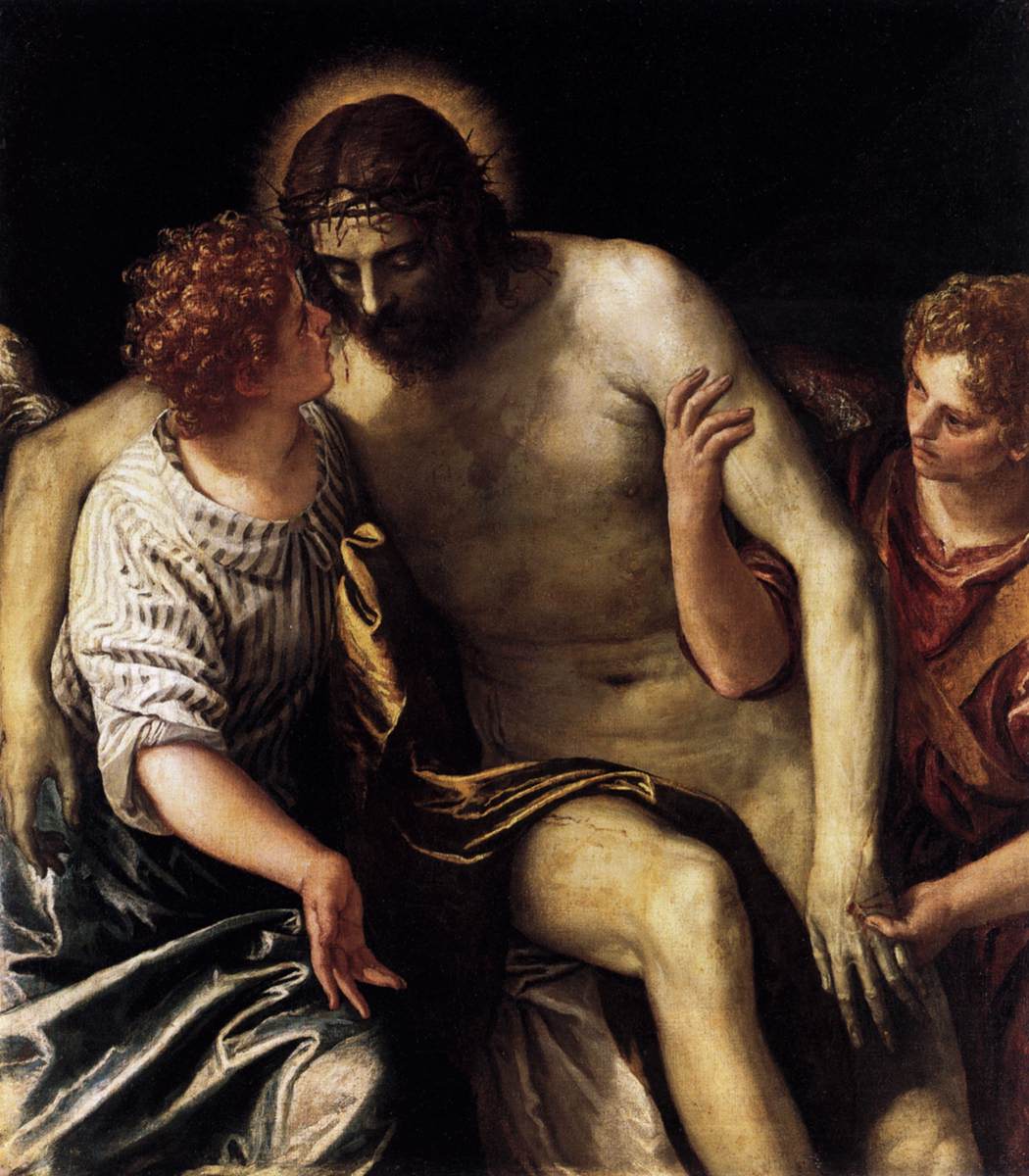Description
The painting "Dead Christ Supported by Two Angels" by Italian artist Paolo Veronese is a masterpiece that captivates viewers with its unique artistic style, masterful composition, and use of color.
In terms of artistic style, Veronese was known for his detailed and realistic approach, and this painting is no exception. Every brushstroke and every detail of Christ's body is carefully rendered, demonstrating the artist's technical skill. In addition, Veronese uses a rich and vibrant color palette, which adds life and drama to the scene.
The composition of the painting is another highlight. Veronese places Christ in the center of the work, surrounded by two angels who support him. This arrangement creates a sense of balance and harmony, while highlighting the central figure. The position of the angels, with their wings spread and their expressions of sadness, adds an emotional element to the scene.
The history of the painting is also fascinating. It was commissioned by the Grimani family of Venice in the 16th century and is believed to have been painted to be placed in a funerary chapel. The image of the dead Christ, supported by angels, is a common theme in religious art, but Veronese puts a unique spin on it by depicting Christ in a calm and serene state, rather than in suffering.
In addition to the more well-known aspects of the painting, there are lesser-known details that deserve attention. For example, Veronese uses a technique called sfumato to soften the transitions between colors and shapes, creating an ethereal and mysterious atmosphere. It has also been noted that the angels holding Christ have similar features to members of the Grimani family, suggesting that Veronese may have portrayed them in the work.
In short, "Dead Christ Supported by Two Angels" is a painting that stands out for its detailed artistic style, balanced composition, and use of color. Its history and lesser-known details add another layer of interest to this Paolo Veronese masterpiece.

